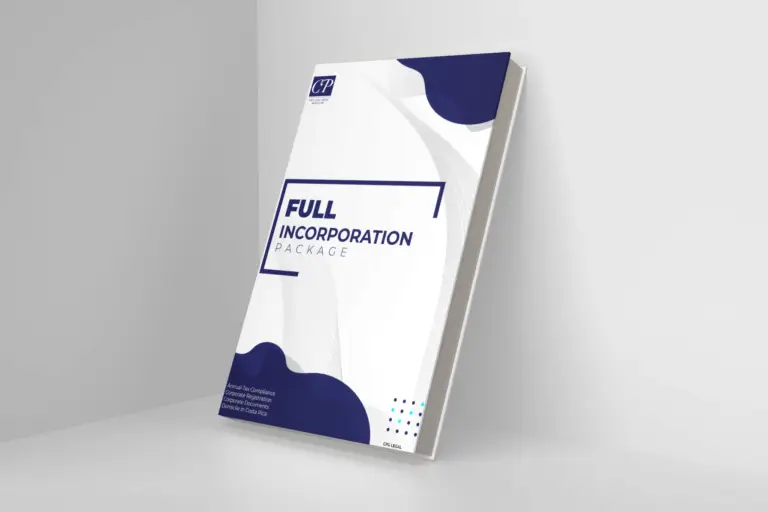Should foreigners buy property in Costa Rica through a Corporation?
If you’re a foreigner considering purchasing property in Costa Rica, you might question whether creating a corporation as your buying entity is necessary or advantageous. It’s a common query among expats weighing the benefits against the costs. Owning land in Costa Rica is a wonderful idea, and the usual advice is to place the property in a corporation, be it an LLC or a Standard Corporation. Property ownership through a corporation, is one of many options you have, when buying property in Costa Rica. Corporations can be domiciled in any of the province in Costa Rica: Guanacaste, San José, Cartago, Heredia, Alajuela, Limón or Puntarenas. To make an informed decision—without being swayed by well-intentioned but possibly uninformed advice—consider the following key points:
Six reasons to use corporations when buying property in Costa Rica:
Let’s explore the main advantages to consider when buying property in Costa Rica as a foreigner through a corporation.
1. Legal flexibility through proxy:
Purchasing a property through a corporation offers significant advantages, especially for foreigners. It allows you to manage company decisions related to the property from abroad, eliminating the need to travel to Costa Rica or visit a Costa Rican consulate for certain legal procedures.
This method streamlines decision-making and enhances flexibility. Shareholders can remotely sign a proxy letter, authorizing their attorney to hold a shareholder meeting in Costa Rica on their behalf for necessary tasks—such as approving upgrades to utilities or services. This setup saves time and money while simplifying property management from anywhere in the world.
2. Asset protection through limited liability:
Owning property via a company provides a protective barrier between the company’s assets and your personal liabilities. This separation ensures that debts or legal issues unrelated to the company won’t affect the property and its assets.
This safeguard is crucial if you’re involved in other business activities under your personal name that could potentially create liabilities. By holding the property in the company’s name, you protect your investment from external challenges.
3. Tax safeguard:
The amount of money a corporation makes in Costa Rica is separate from that of the individual shareholder. This creates a taxation safeguard that makes buying property in Costa Rica through a corporation attractive. This can offer some respite, especially if you are taxed globally, since any rents or income from the property belong to the corporation and not to you personally. This does not mean, however, that the corporation is exempted from taxation. Costa Rican income tax and corporate taxes must be taken care of. Contact us to learn about our maintenance and regulatory compliance packages. We will be happy to take care of this for you.
4. Estate planning is easier:
Incorporating a corporation can play a strategic role in your estate planning. It serves as a vehicle for purchasing property and is a vital component of a broader estate framework, which can be linked to a will, trust, or other legal entities. Since you own the corporation’s shares, and the corporation owns the asset, any last will must pertain to the shares alone.
You must hire our law firm to file your will and establish your heirs, indicating who will receive the shares and in what proportion. This strategy simplifies estate management and ensures continuity and protection for your assets within the corporate structure. Remember that the corporation owns the asset; you do not. You own the shares of the company, which is something entirely different.
5. Residency in Costa Rica:
Foreigners who acquire real estate in Costa Rica are eligible for investor residency, whether they invest personally or through a corporation. The company shares can serve as proof of investment to meet the residency requirements, as facilitated by your Costa Rican real estate lawyer.

6. Some protection against property fraud:
While real estate fraud in Costa Rica is rare, it can occur. Common schemes involve illegal transfers of properties or falsifying documents to use properties as collateral for loans. This is done, in most cases, by unsuspecting notary publics who are presented with fake identifications. Such risks are higher when the property is registered under a foreign client’s name, as scammers may impersonate owners using false identification. Properties are often targeted when owners haven’t visited Costa Rica for extended periods (information accessible via immigration records), legal obligations like taxes aren’t met, or the property is physically neglected. This is another reason for you to look into our maintenance and compliance packages, so that we can keep everything up to date for you.
Owning land in Costa Rica through a company will require additional legal documents, such as the corporate books. These are required to make any property transfer, as a shareholder’s meeting is required to authorize the transaction. This makes things a little bit more difficult for defrauders. However, to take advantage of maximum protection for your property investment, you should check my article on property fraud.
Conclusions:
Owning land in Costa Rica is a wonderful property investment that will yield a lot of benefits. When buying property in Costa Rica as a foreigner, you should definitely consider incorporations. Even though, a corporation does involve additional expenses. These include legal fees for incorporation, annual corporate taxes (approximately US$125 per year). It also involves regulatory compliance with annual obligations. However, the benefits often outweigh the costs when investing in Costa Rica. Our legal firm offers maintenance packages to handle compliance matters to ease the process, ensuring that your corporation and property remain in good standing. This assistance allows you to enjoy the advantages of corporate ownership without the administrative burden.
Dr. Christopher Pirie Gil.
